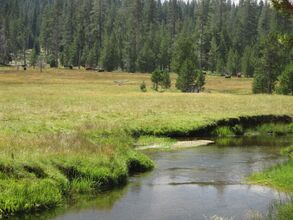WORKING CIRCLE
Understanding the challenges ranchers face and the level of sophistication required to operate these complex biological systems in an economical and ecological sustainable fashion will go a long way to ensure that working ranches and large predators who share those landscapes can endure and thrive long-term.
~ Southern Oregon Rancher
~ Southern Oregon Rancher
By advancing approaches that increase ranch resiliency, economic viability, and operational efficiency, we ensure that ranch families can keep ranching for generations to come.
WC's comprehensive strategies include adaptive herd and range management focusing on stockmanship, herd health & nutrition, and understanding predator biology and ecology.
These same strategies promote healthier lands, water, and wildlife habitat.
WC's comprehensive strategies include adaptive herd and range management focusing on stockmanship, herd health & nutrition, and understanding predator biology and ecology.
These same strategies promote healthier lands, water, and wildlife habitat.

Ranch Resiliency is the ability to hold multiple values and maintain a focus on long-term sustainability by growing the capacity across the land and people through strategic adaptive management approaches. This way you will be able to withstand the challenges and changes of time.
~ Hilary Anderson, Crazy D Ranch, Montana
A Sustainable Way Forward
Coexistence between predators and livestock has historically required continuous output of resources in terms of time, energy, money, and physical equipment and tools. This one-way outpouring of resources is not sustainable as predator and human populations continue to increase. Working Circle focuses on an approach in which the strategies that we support have the potential to allow ranches to experience an equal if not greater return on investment in time, money, or energy. Our goal is to not only reduce the vulnerability of cattle to predation but work to increase ranch viability and resiliency.
It's time we shift from reactive wildlife management to proactive ranch management. It is here that we can find coexistence success long-term.
It's time we shift from reactive wildlife management to proactive ranch management. It is here that we can find coexistence success long-term.
Working Circle is honored to partner with Ranch Management Consultants to sponsor individual ranchers, landowners, and ranch managers to the Ranching For Profit School. Check out their website and contact us for more information on attending one of their most-valuable
week-long courses.
week-long courses.
Serving California, Colorado, Washington, and Oregon
DONATE HERE to support proven, long-term, and sustainable strategies
to reduce wolf-livestock conflict, thus protecting both cattle and wolves.
For more ways to donate visit our SUPPORT US! page.
DONATE HERE to support proven, long-term, and sustainable strategies
to reduce wolf-livestock conflict, thus protecting both cattle and wolves.
For more ways to donate visit our SUPPORT US! page.
Working Circle is a Colorado Non-Profit, Federal 501(c)3 organization
Copyright © 2016

